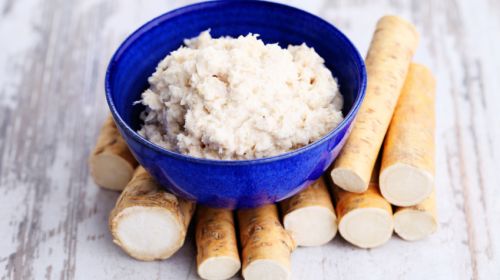A sore throat and difficulty swallowing are characteristic of a sore throat (pharyngitis). While the acute form usually occurs as part of a cold, chronic sore throat has other triggers. Which home remedies and medicines relieve sore throat.
- © Getty Images/Daniel de la Hoz
Quick Overview: Inflammation of the throat (pharyngitis)
Definition: Inflammation of the pharyngeal mucosa, which can be acute or chronic.
Causes: Frequently viral or bacterial pathogens, in the chronic form mechanical stress on the throat.
Diagnosis: Examination of the throat and pharynx, if bacteria are suspected, a smear of the pharyngeal mucosa will help.
Home remedies: Gargling, lozenges, and drinking plenty of fluids can often relieve an acute sore throat. Anti-inflammatory drugs can sometimes help with severe symptoms.
Article content at a glance:
What is a sore throat?
The term acute sore throat (pharyngitis) refers to various inflammations in the throat, the main symptom of which is a sore throat. They usually occur more frequently in autumn and winter due to an infection of the upper respiratory tract.
The duration of the complaints does not exceed 14 days in the acute form. In chronic pharyngitis, the symptoms last at least three months.
Home remedies for sore throat
Home remedies for the pain are very effective for simple infections. It is helpful to moisten the throat, for example by sucking on throat drops or lozenges and gargling with a saline solution or sage tea from the pharmacy or drugstore. It is important to drink enough to keep the mucous membranes moist. The neck should be kept warm by a scarf or shawl.
Classic home remedies for a sore throat in a sore throat are:
- warm neck wrap
- warm herbal teas with honey
- Inhalation with salt water or chamomile tea
- gargling solutions
If the symptoms of the sore throat do not improve within a few days or if fever occurs, a doctor must be consulted.
What helps with a sore throat?
Acute sore throat caused by cold viruses is treated symptomatically. The use of antibiotics does not make sense, since they only work against bacteria. The administration of a suitable antibiotic may only be indicated if a severe bacterial infection is detected after a throat swab. Penicillin is effective against streptococci.
A chronic sore throat can only be permanently combated by avoiding the triggering substances. The inflammation then usually subsides within a few weeks. Artificial saliva (Glandosane) is used to treat chronic sore throat caused by radiation therapy.
Painkillers such as diclofenac, paracetamol or ibuprofen, or throat lozenges can be taken to relieve the sore throat.
What are symptoms of acute sore throat?
The first symptom that is often noticed is a scratchy throat with difficulty swallowing. This quickly turns into a real sore throat, which can also radiate into the ears. The throat often feels dry and uncomfortably raw, which is accompanied by frequent throat clearing. In acute infection, fever and other cold symptoms such as a runny nose, hoarseness and coughing can occur. The lymph nodes are usually also swollen and painful.
Infection can also spread to the larynx or vocal cords (laryngitis). Then there is additional hoarseness.
The symptoms of acute sore throat usually progress without complications and disappear again within three to five days on average.
Symptoms of chronic pharyngitis
In the case of chronic sore throat, mild symptoms are present over a long period of time. There is a dry feeling in the throat. Patients often clear their throat and often have the feeling of having something in their throat (globe syndrome).
Causes of acute and chronic pharyngitis
In most cases, acute pharyngitis is caused by viruses (adenoviruses, influenza viruses, parainfluenza viruses). Only in rare cases are bacteria, then mostly streptococci, the trigger of the sore throat. Very rarely, the Epstein-Barr virus is the cause of pharyngitis.
Chronic pharyngitis has other causes. Here no pathogens are responsible for the sore throat, but mechanical causes such as
- excessive smoking,
- dry room air,
- reflux (backflow of irritating stomach acid into the esophagus),
- heartburn or
- radiation therapy in the neck.
Diagnosis of pharyngitis
As part of the anamnesis, the doctor can describe the symptoms and the history of the disease. This is followed by a physical examination, with the focus on the throat. In acute inflammation, the pharyngeal mucosa appears red and inflamed. If there is a runny nose, mucus will also be visible in the throat.
If there is also tonsillitis (angina tonsillaris), severely swollen, red tonsils with coatings can be seen. If the tonsils have been removed, the mucous membranes of the side cords are red and swollen.
Severe symptoms with a high fever should be clarified by a doctor, it could be a real flu (influenza).
Identify chronic sore throat
There are two forms of chronic pharyngitis:
Atrophic form (pharyngitis atrophicans et sicca) – Lymphatic tissue in the throat area recedes.
Hypertrophic (or hyperplastic) form (pharyngitis hyperplastica) – tissue overgrowth in the throat.
Specialists can recognize both diseases by looking into the pharynx. In the atrophic form, tender, pale, and dry pharyngeal mucosa with plaque is visible. In hypertrophic pharyngitis, overgrowth of the lymph cells in the throat and reddening of the mucous membrane are often visible.


